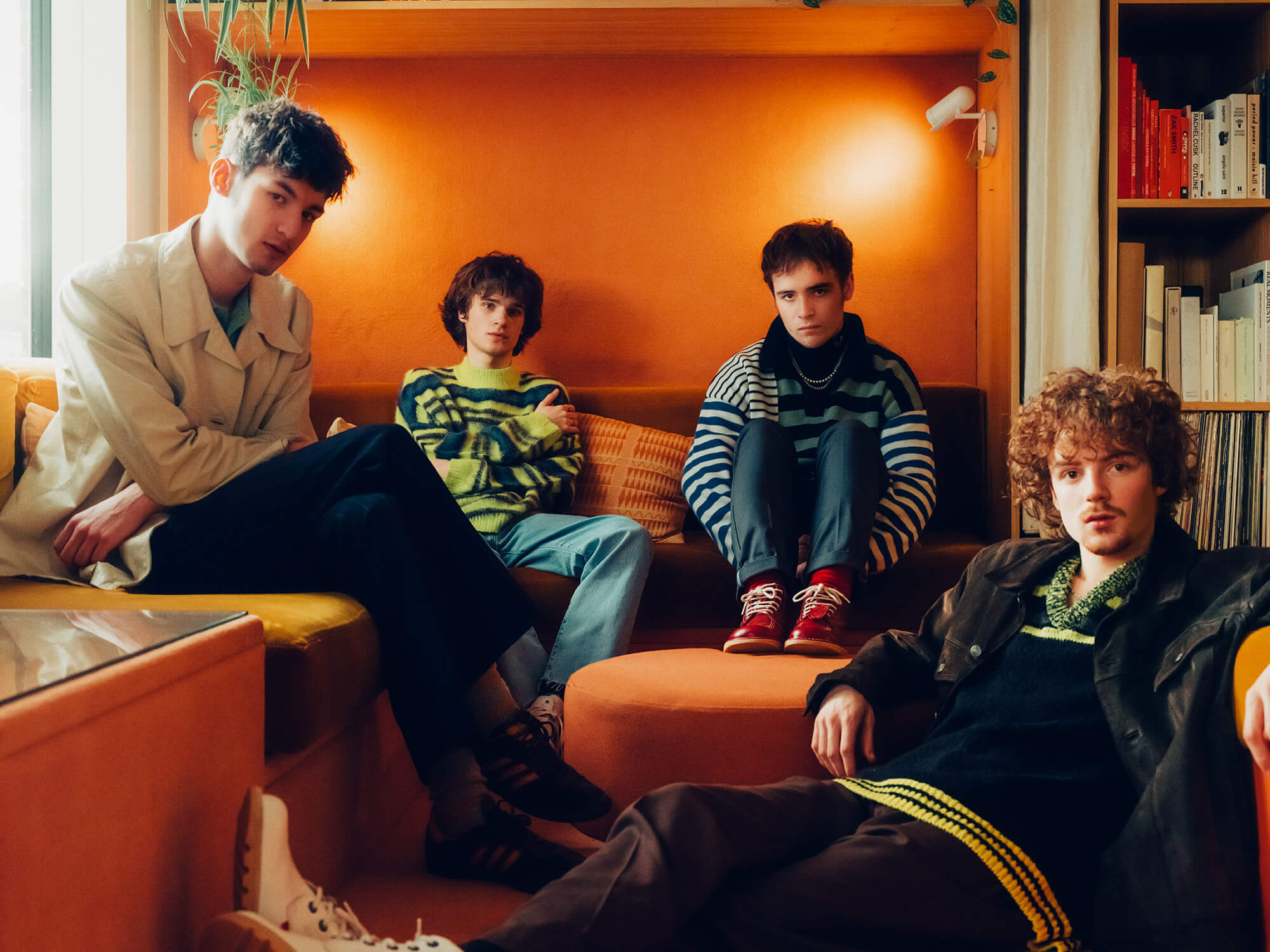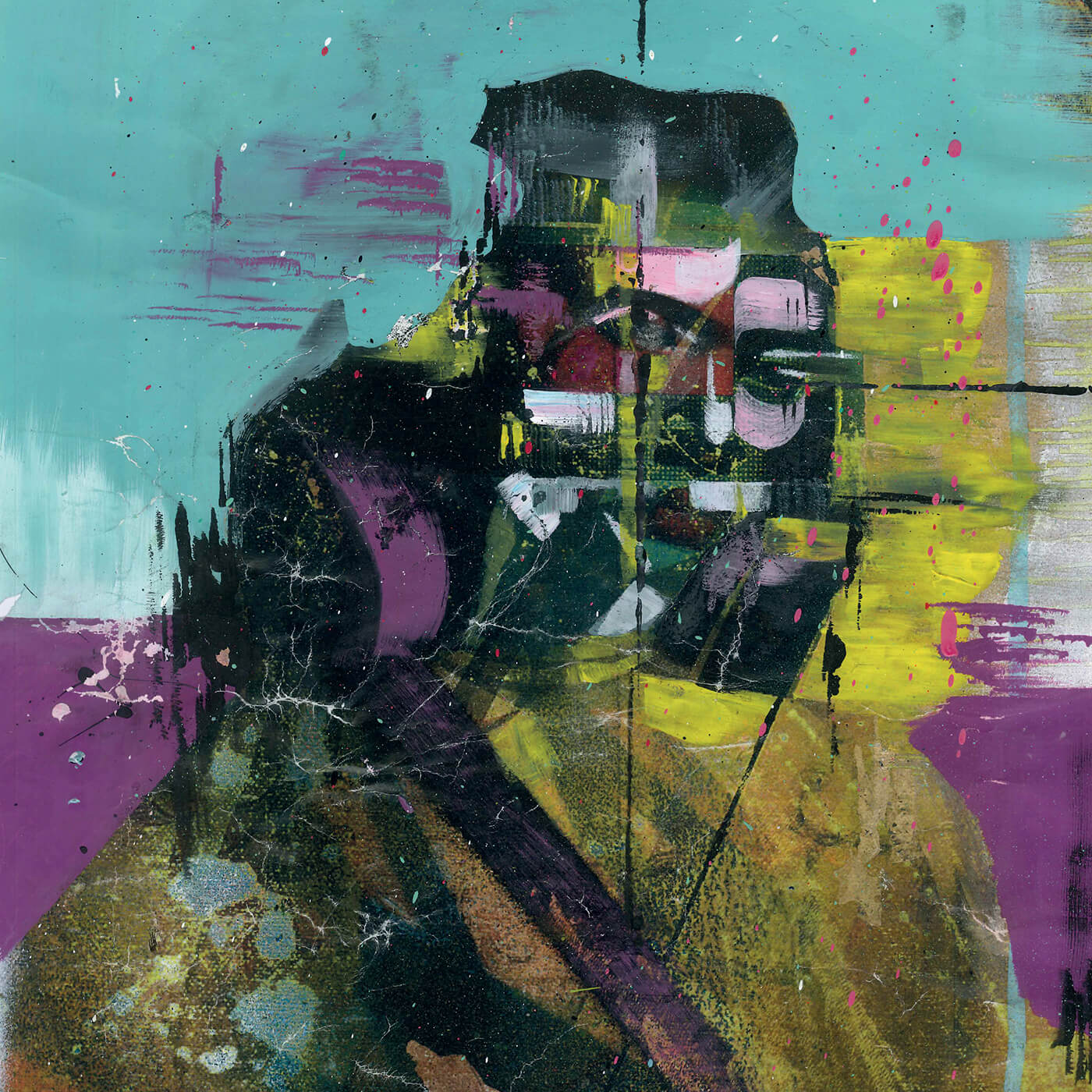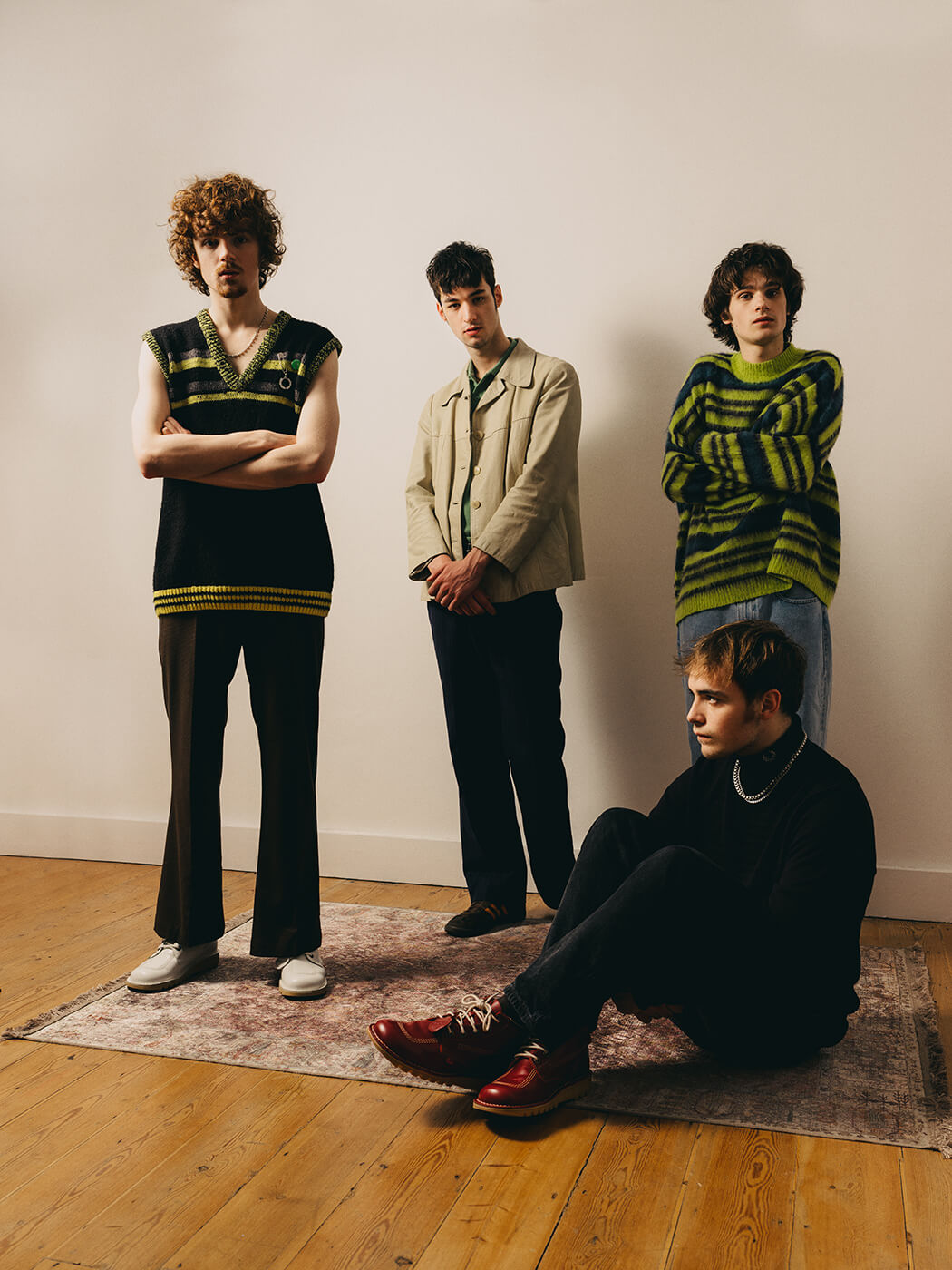Meet The Lounge Society – the latest fruits of producer Dan Carey’s innovative Speedy Wundaground label
Recording their debut album over an intense fortnight with producer Dan Carey, the Hebden Bridge band have created a vision of endless adolescence and panic in just 11 songs.

Image: Alex Evans
The website of DIY label Speedy Wundaground features what is described as a 10-point plan, but reads more like a manifesto, summed up by the 10th and final declaration: “Speedy Wundaground records will not be slow”.
Started by Franz Ferdinand, Bat For Lashes, TOY, Kate Tempest, black midi, Fontaines D.C. and MIA producer Dan Carey, plus friends Alexis Smith and Pierre Hall, SW’s modus operandi is to get bands working fast and let that urgency inspire interesting outcomes. It’s certainly been the case with well-received releases from the likes of Honeyglaze and Stephen Fretwell, and the latest band to get the breakneck treatment are Hebden Bridge four-piece, The Lounge Society. We spoke to guitarist Herbie May about making the album and their collective approach to creation.
You recorded this album in its entirety over just two weeks. How did you curate such a significant body of work in that time?
By the time we were in the studio to start recording with Dan [Carey, producer], we’d worked with him a few times, so we were all really comfortable, which was helpful. We were familiar with a lot of the gear in the studio and how Dan worked, so we sort of got straight to it. Recording the record with Dan was always going to be an intense experience and we were ready for that – I think that’s what this album needed. We decided in the first day or so exactly what we wanted to do and then spent our time focusing on getting the sound we wanted.

The majority of the songs were composed either just before or during the sessions too. How did you maintain that level of inspiration and creativity over a short, intense period?
A lot of the songs had already been around for a while but we ended up writing quite a lot of the lyrics together during the week of recording. It’s Just a Ride, for example, is probably the oldest track on the record but we finished the lyrics altogether the night before we recorded it. There was a certain level of chaos when it came to finishing lyrics during that week, but it was all quite exciting. In the same way there was an intensity with recording the record in a short space of time, there seemed to be a bit of a creative burst when we were all sat around in our accommodation, adding the final touches to our most important piece of work. It was quite a uniting moment for us.
You don’t have a bandleader. How do you work as a unit and where do you draw your inspiration from?
Working as a unit is probably the most important thing for us as a band. When we get into a room together to write, record or rehearse, it’s a collaborative process in every sense. It’s always worked really well for us. Instead of having one person suggesting ideas, we’ve got all four of us throwing equally exciting ideas into the circle, so we end up having much more to work with than we would if it was all coming from one person.

What impact does Dan Carey have on the process? What’s it like working out of his studio?
I think it’s got to the point in the studio with Dan where he sort of acts like a fifth member. Obviously we’re the ones stood there with the instruments playing the song, but he will always be doing something that you don’t notice. There’s been times when he’s sent both the guitars through a completely different set of pedals and amp, usually quite a weird, fucked-up sound that he’ll dip in and out of in the final mix. When we were recording the album, we spent quite a bit of time putting the drums through this Colossus modular that Dan has. There was definitely a jungle influence on some of the drum sound, hip-hop as well. With tracks like Boredom is a Drug, we had quite a lot of fun watching Dan play with that drum sound. We also used that modular synth on the No Driver introduction.
What can you tell us about your process of recording guitars?
We used a Watkins Copicat on some of the guitar lines throughout the album. That thing is crazy. Pretty sure it’s used on an overdubbed layer on the high lead at the very start of Remains. It’s definitely in the album in a few places. There’s also some ambient, strange, ethereal drones that appear between some of the tracks, usually the hum and buzz of guitars processed into these trippy interludes. It’s pretty cool.
What did your guitar rigs look like throughout the process?
One of the best things about recording with Dan is his collection of beautiful vintage guitars, amps and pedals. There were a few guitars and amps that we kept going back to throughout the recording of the album but, apart from that, we really varied it. We all fell in love with his Rickenbacker bass – we seemed to always find the perfect tone with that. We also used Dan’s 1960s Mustang on the record. That’s another reliable guitar when it comes to trying to find the best tone. Often we’d try a few guitars on a track and maybe it wouldn’t sound right, and Dan would just say, “Maybe just try the Mustang again”, and everyone would be like, “Oh yeah, that’s the one”.
When it comes to pedals, we’d usually keep it minimal. Rather than using 10 subtle pedals, we’d maybe have three or four. I guess when you’re playing a beautiful vintage guitar going into a vintage amp, pedals sometimes do more damage than they actually add. We used some pretty lovely drive pedals across the album. We were pretty set on the record not sounding ‘too nice’, that was a big thing for us, so having an insane selection of boutique drive pedals was great.
The Lounge Society’s debut album, Tired of Liberty, is out August 26 on Speedy Wunderground.
